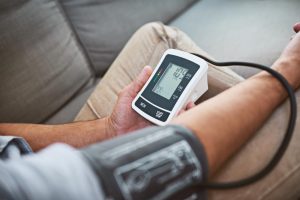About cardiovascular disease signals improved blood pressure. And the higher the testimonies the more creates a danger to humans. 120/80 mm Hg. -Here's the rule of blood pressure in a healthy person. But if it increases, we already talk about hypertension (arterial pressure).
Allocate 4 types of hypertension:
- arterial-increase pressure vessels standards
- pulmonary-improving standards of pressure in the pulmonary artery
- Portal-improving standards of pressure in portal Vienna
- intracranial-pressure in the cranial cavity
Any type of pressure build-up requires examination and treatment areas in medicine (internal medicine, cardiology, Neurology, Gastroenterology).
Hypertension in adults
In males the most common arterial and portal hypertension. In the first case, the cause is smoking, sedentary lifestyle, overweight. And the second is harmful foods and excessive drinking. Women are facing hypertension after menopause.
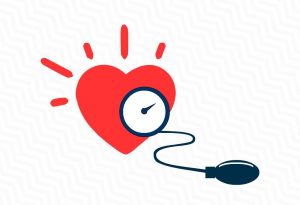
Hypertension and hypertension-what is the difference?
The notion of "hypertension" and "hypertension" associated with increased pressure. But there is a difference between them. The main difference is that hypertension This disease, and hypertension is a symptom. In a healthy person may increase pressure (hypertension), for example as a result of greater physical loads. And here's the hypertension signals of violations in the body, and in a healthy person never appears. And unlike hypertension that is not treatable, with hypertension you want to assign it immediately to prevent serious complications.
Hypertension
Hypertension (high blood pressure) is the steady increase in pressure, which is not a symptom of another disease. It is a chronic disease. After raising HELL can come back only if you take the medication.
Possible causes of hypertension: a long tension in the result of intellectual work or frequent stay under stress.
Arterial hypertension
Arterial hypertension is a sharp jump in blood pressure above the reading of 140/90 mm Hg. This can cause disturbances in the nervous system, kidneys, heart. All this affects human health. And the result of this disease are stroke and circulatory disorders in the brain. This is the most common disease of the heart and blood vessels.
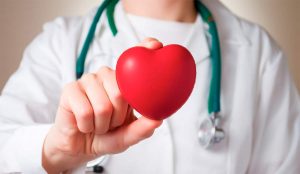
There are two types of hypertension:
-
- Essential hypertension - The disease occurs in people aged 30-45 years, mainly due to the influence of external factors.
- Symptomatic hypertension - is rare (10% of people with high blood pressure) and in people of different ages, it occurs as a symptom of a more serious disease.
If the pressure rises, you should consult a doctor so that he can determine what type of hypertension is your case. Treatment depends on this.
Let us consider these two types in more detail.
Essential hypertension
Essential hypertension (the name in medicine is hypertensive disease) - or primary arterial hypertension. The most common disease in adults. Find the cause of primary hypertension is almost impossible. Doctors consider the cause of the disease to be abnormalities in the work of the cerebral vessels.
The diagnosis of hypertension is made by the doctor after measuring the pressure with a special device and 2 facts of an increase above 140/90 mm Hg. Art.
The risk of hypertension is a possibility of transmission by inheritance.
In the case of progression of the disease may be complications of the heart, nervous system, kidneys, eyes.
Medicine identifies the main causes of essential hypertension:
- genetics
- elderly age
- sedentary lifestyle
- obesity
- smoking
- drinking alcohol in large quantities
- kidney disease
- diabetes
- climax in women
Symptomatic hypertension.
Symptomatic hypertension is a disease that results from the complication of other diseases in a person. About 50 such diseases are known in medicine.
The causes of symptomatic hypertension can be the following diseases:
-
-
- nervous system
- The causes of symptomatic hypertension can be the following diseases:
- thyroid gland
- adrenal tumors
- vascular pathology
-
Treatment of symptomatic hypertension separately from the cause of its occurrence (another serious illness) is useless and sometimes even dangerous.
Therefore, before making a diagnosis, the patient must undergo a full examination.
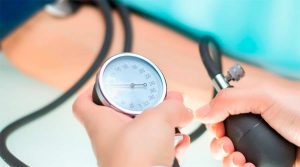
The degree of arterial hypertension.
It is important to remember that the standard of blood pressure are indications 120-140 / 60-90 mm Hg. This applies to people of any age.
Depending on the level of pressure increase, 3 degrees of arterial hypertension are distinguished:
- Stage 1 - the pressure rises to a value of 140–159 / 90–99 mm Hg. Art. It should be noted that several repetitions of such an increase in blood pressure can lead to a real hypertension.
- 2 degree - the pressure rises to a value of 160–179 / 100–109 mm Hg. Art. Related symptoms: feeling unwell, weakness, headache and dizziness.
- Stage 3 - the pressure rises to a value of 180/110 or more mm Hg. Art. There is a real threat to human health. Required: medical supervision, medication.
Symptoms of arterial hypertension.
Arterial hypertension is always accompanied by a general deterioration of a person’s well-being. This can be accompanied by dizziness and headache. The patient complains of a bad dream, the flickering of the "flies" before his eyes.
Only by measuring pressure can arterial hypertension be determined..
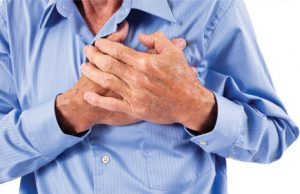
Arterial hypertension - complications.
A patient with arterial hypertension has a risk of complications from the work of various organs. The risk of cardiovascular complications in a patient depends on gender, age, cholesterol level and the presence of bad habits. The risk of complications of arterial hypertension increases if the patient has serious diseases such as coronary disease or diabetes.
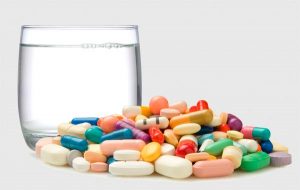
Treatment of hypertension.
The diagnosis of “arterial hypertension” can only be made by a physician (general practitioner or cardiologist). And the treatment to the patient is prescribed only by a doctor! The treatment takes place in a complex: daily medication and lifestyle changes. It is necessary to eliminate stress, observe the daily regimen, exercise (moderately), weight loss, reduce the consumption of salt in food or replace it with salt with a reduced sodium content, give up bad habits (alcohol, smoking).


